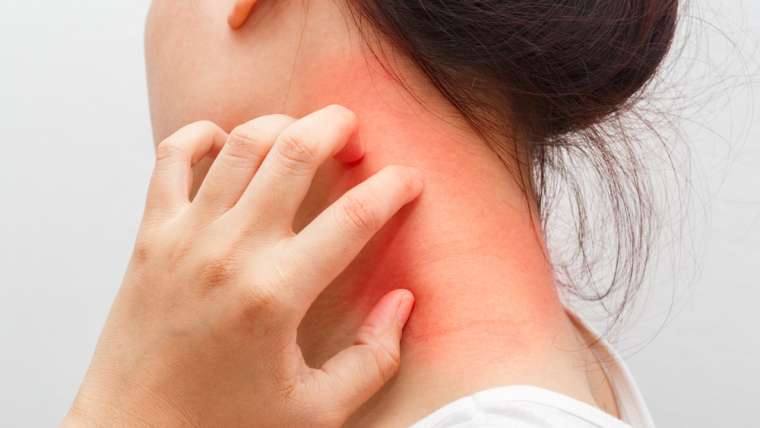Psoriasis and eczema are two of the most common rashes that dermatologists see in practice. In most cases, these two conditions can be easily distinguished, but sometimes even the best dermatologist in Omaha can be challenged. Keep reading to learn more about the differences between psoriasis vs eczema.
We are all blessed with moles, some people more than others. And moles come in all sorts of sizes, shapes, and colors. They are generally medium to dark brown but can also be skin-colored or black. The majority of moles are flat, relatively even in color and regular in shape. Some moles are raised and these are usually soft to touch and lighter in color.
Advanced Dermatology of the Midlands in Omaha offers Mohs micrographic surgery (MMS), the most effective treatment for the two most common types of skin cancer: basal cell and squamous cell carcinoma. Developed by Dr. Frederic Mohs in the 1930s, Mohs surgery became the gold standard in treating skin cancer, especially after the frozen-tissue technique was introduced in the 1970s. Today, Mohs surgery remains the most successful skin cancer treatment while preserving as much healthy tissue as possible.
Atopic Dermatitis (Eczema) What & Where?
Atopic dermatitis, also known as eczema, is a long-lasting dry skin disease where affected patients have a certain type of rash with itching as well as a personal or family history of:
- eczema
- asthma
- hay fever
The itchy skin is due to this disease can be very disruptive to one’s life, causing psychological distress and depression, reduced sleep, and diminished quality of life.
At Advanced Dermatology of the Midlands, we are particularly interested in the treatment of acne. Because of this, we have organized our focus on acne into the Acne Institute of Omaha.
In addition to state-of-the-art patient care and research, education of patients is the third major facet of the Acne Institute. Our care of acne patients over the last decade, we have identified many different and common acne misconceptions, both in teen and adult sufferers as well as the parents of teen acne patients. In this blog, we want to zero in on and explore some of the more common acne misconceptions.
Now that our earlier blog highlighted what rosacea is, let’s look at how it is treated. Several new Rosacea treatment options have come to the market in recent years. But any discussion about Rosacea treatment would be incomplete without first reviewing some things that may make the condition worse.
Have you ever flushed with embarrassment? It turns out the tendency towards the most common type of rosacea is based on this issue—flushing and blushing. Though the line is blurred between having this predisposition versus having full blown rosacea, the best dermatologists recognize that this skin problem.
In addition to its immediate effects on the skin, acne can cause some long-term alterations which are unpleasant. One of the most common things we see at Advanced Dermatology of the Midlands caused by acne is darkening in the skin—known as post-inflammatory hyperpigmentation. These acne dark spots are especially common in people with darker complexions. Though in most cases these darkened areas are not permanent, they can last for a very long time, mimicking scarring. The good news is there are dark spot correctors to help speed their clearance from the skin.
Sunburn can run the spectrum from mild stinging and burning all the way up to a much more serious illness, in some cases requiring hospitalization. Though the threshold for sun exposure to cause a burn is different for every single person, most of us have the unfortunate opportunity at least once in our lifetime to experience the displeasure of too much sun, and many of us can identify with Violent Femmes lyric “I blister in the sun.”
We want to dig deep into this topic to make you better prepared to avoid sunburn and to handle a burn if you do get one.
Mohs Surgery has withstood the test of time, remaining the gold standard and best way to treat certain types of basal cell and squamous cell skin cancers. Mohs—developed by general surgeon, Frederic E. Mohs—is a microscopically controlled surgery used to treat common types of skin cancer. During Mohs surgery, the surgeon can see where the cancer stops.
This ability gives the Mohs surgeon two important advantages:
- Mohs surgery has a high cure rate
- Surgery allows you to keep as much healthy skin/healthy tissue as possible because the surgeon only removes the skin with cancer cells









